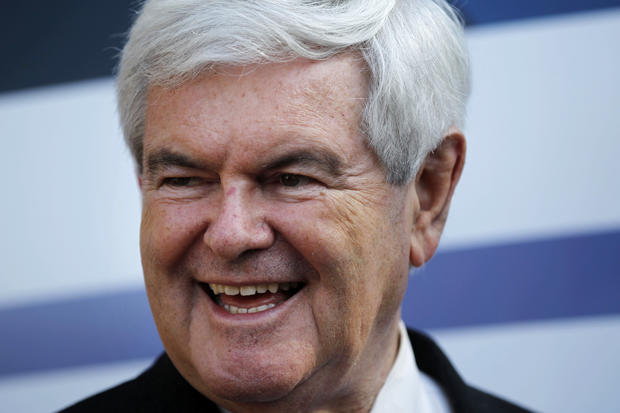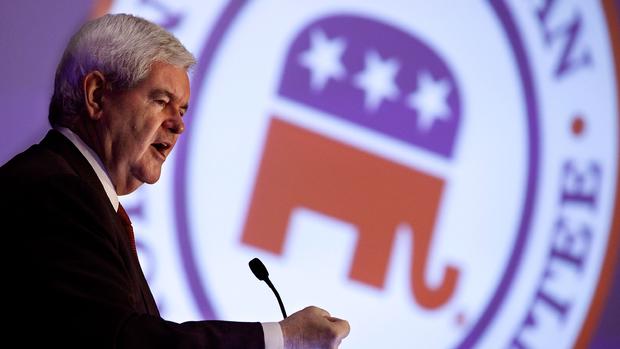Newt Gingrich: The adverbial candidate
ORLANDO, Fla. -- Newt Gingrich likes many things - Ronald Reagan conservatism, the Hong Kong tax model, zoos, space exploration and adverbs.
Literally.
On the stump and in press conferences, the former speaker of the House has a penchant for seasoning his speech with words that end in -ly. He told a group of supporters Saturday, "Some fairly crazed people who are terrified I'll become the nominee have been writing some genuinely whacked out things."
Gingrich saves his most colorful adverbs for republican rival Mitt Romney. Thursday, he told a group of reporters, "There's something so grotesquely hypocritical about the Romney campaign."
He has assailed Romney's campaign as "fundamentally dishonest," and called a statement made by the former Massachusetts governor "fundamentally abusive" and "factually inaccurate" -- as if there's another kind of inaccurate.
As Florida votes, Gingrich keeps fighting
A viewers guide to the Florida primary
How Mitt Romney stole Newt Gingrich's voice in Florida
In an 8-minute press conference on Sunday, Gingrich unleashed the following modifiers: deeply, substantially, clearly, very, very, very, very, very, deliberately, very, genuinely, actually, candidly, seriously, seriously, very, highly, likely, very, very, increasingly, totally, collectively, directly.
George Lakoff, a professor of Linguistics at the University of California - Berkley, who has written extensively on political communication, says Gingrich accomplishes two things by using (and repeating) these words. "He's establishing himself as an authority figure at the same time that he's appealing to emotion."
Lakoff explains that emotional appeal as something that separates Democrats and Republicans. "Democrats think that communication is about communicating policy on the basis of people's self interest. They often miss moral world view." Using words like "fundamentally" and "utterly" suggest expertise on a given subject, says Lakoff, noting Gingrich's tenure as a history professor early in his career.
Gingrich has long known that word choice matters. In the mid-1990s while he was speaker of the House, Gingrich's political action committee, GOPAC, distributed to House Republicans a list of "Governing Words" that were to be used "in writing literature and mail, in preparing speeches, and in producing electronic media."
Words like share, change and opportunity made the list of "Optimistic Governing Words." Decay, failure and taxes populated the "Contrasting Words" list.
Oddly enough, only two adverbs made either list: candidly and actively.
Full CBS News coverage: Newt Gingrich

